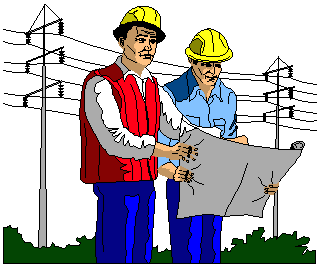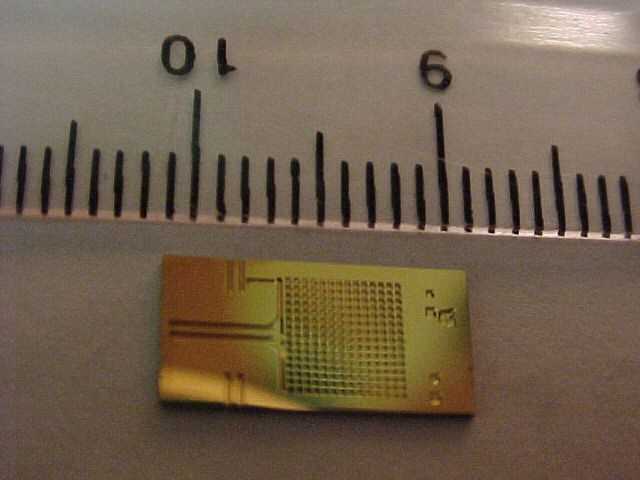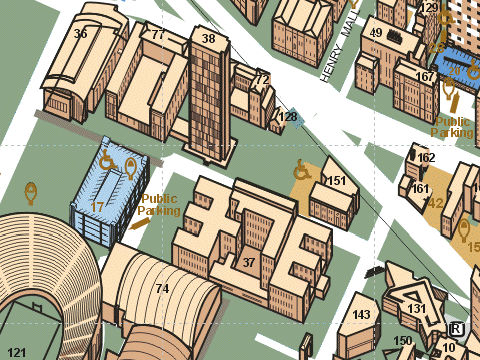
IEEE Madison Section - 2002 Meeting Archive
Institute of Electrical and Electronics Engineers


Speaker: Nathan Sauer, Jon Lancaster Toyota
Location: Rocky Rococo's Pizza
7952 Tree Lane (Madison Beltline Hwy. at Mineral Pt. Rd.), Ph 829-1444
Menu: Pizza buffet, salad and soft drinks
Lunch Price: $10.00
RSVP by January 14th to Tom Yager via email or call 608.821.0821 ext. 342
Non-member guests are always welcome!
This new in the US, hybrid vehicle uses a high-technology conventional engine along with a permanent magnet electric motor served by Nickel-Metal Hydride batteries to attain impressive fuel economy of around 50 miles per gallon without external charging. Prius has even been certified by the state of California as a Super Ultra Low Emission Vehicle (SULEV). Tens of thousands of units have already been sold and are now on the road in Japan.
Nathan Sauer, a leading sales professional at Jon Lancaster Toyota in Madison, will address the details and performance characteristics of the Prius vehicle in general with special attention to its unique energy-conservation technology.

Speaker: Kenneth D. Copp, American Transmission Company
Location: Rocky Rococo's Pizza
7952 Tree Lane (Madison Beltline Hwy. at Mineral Pt. Rd.), Ph 829-1444
Menu: Pizza buffet, salad and soft drinks
Lunch Price: $10.00 (free for UW-Madison Student Branch members)
RSVP by February 18th to Tom Yager via email or call 608.821.0821 ext. 342
Non-member guests are always welcome!
When American Transmission Company started business on Jan. 1, 2001, it broke new ground as the first for-profit, transmission-only company formed in the United States from multiple non-affiliated utilities since the onset of open transmission access. The formation of this transmission-only company came about as the result of a series of federal and state laws over the past decade allowing greater competition in the energy industry. Historically, utility companies have provided for the generation, transmission and distribution of electricity to customers within regulated, vertically integrated utilities. The legislative and regulatory changes are resulting in the creation of new companies responsible solely for generation, transmission or distribution functions, among them ATC.
Now it is 2002. The utility landscape continues to change. This presentation will be a brief update on where we have been and what has been accomplished to ensure the electric transmission system continues to be reliable and accessible.
Ken Copp joined American Transmission Company in August 2000 as Director of Engineering, Maintenance and Construction. As such, He is responsible for all aspects of protection and control design, overall facilities design and facilities maintenance. All of Ken’s responsibilities require maintaining a close working relationship with ACTs contributing utility companies. His area also provides project management of all infrastructure additions as well as interconnection facilities for customers of the transmission company.
Ken brings 28 years of experience at Wisconsin Electric to ATC, most recently as Manager of Electric System Operations.
He is registered professional engineer in the state of Wisconsin and a member of IEEE Power Engineering Society. He holds a bachelor’s degree in Electrical Engineering and an MBA, both from the University of Wisconsin – Milwaukee.

Speaker: Amit Lal, Assistant Professor, Electrical and Computer Engineering, UW-Madison
Location: Rocky Rococo's Pizza
7952 Tree Lane (Madison Beltline Hwy. at Mineral Pt. Rd.), Ph 829-1444
Menu: Pizza buffet, salad and soft drinks
Lunch Price: $10.00 (free for UW-Madison Student Branch members)
RSVP by March 18th to Tom Yager via email or call 608.821.0821 ext. 342
Non-member guests are always welcome!
Nuclear microbatteries have been explored over the last century. This talk will describe some experiments and a new paradigm of using integrated microbatteries for powering MEMS devices. Experimental results on a self-reciprocating cantilever device will be described that guides the way to a highly integrated sensor, actuator, computation, and information transmission tool. Theoretical results and future of this technology with respect to military and civilian needs will also be discussed.
Prof. Lal is a member of the Departments of Electrical and Computer Engineering and Biomedical Engineering. He is affiliated with the Biomedical Engineering Center, MRSEC IRG #1 on Chemical Vapor Deposition, Materials Science Program and Wisconsin Center for Applied Microelectronics. He has interests in MEMS, ultrasonics, sensors and actuators, biomedical engineering, microfluidics and integrated circuit design. Prof. Lal has a PhD from the University of California, Berkeley.
Speaker: Donn Dengel & Paul Moller, Motorola
Location: 1800 Engineering Hall - parking available in lot 17 (see map)
Menu: pizza and soda
Dinner Price: FREE!
RSVP by April 19th to Tom Yager via email or call 608.821.0821 ext. 342
Non-member guests are always welcome!
Donn Dengel is a Senior Electrical Engineer in Motorola's Commercial, Government & Industrial Solutions Sector, where he designs electronic hardware for land mobile two-way radio products. Last year, his team shipped the world's first Bluetooth application for a two-way radio product. Prior to joining the sector last year, he had 18 years experience at Motorola's Automotive & Industrial Electronics Group designing & testing OEM automotive electronics products. His microprocessor-based memory seat & mirror module designs appeared in several Ford Motor Company products. His career interests are in electromagnetic compatibility, two-way radio, and microprocessors. Donn earned his BSEE degree in 1982 from the University of Wisconsin-Madison. He is an IEEE member.
Paul Moller has 20 years experience working for Motorola on Cellular Phones, with a BSEE from the University of Wisconsin. During the first half of his career at Motorola, Paul worked in several product groups developing mobile and portable cellular phones. Currently, he is a Principal Staff Engineer and an active member of the IEEE Scc34-Sc2 group that is developing the SAR measurement methodology for the IEEE. From 1992 to 2000, he was the technical leader of the PCS SAR labs in Libertyville and Harvard, and is currently working in the RF Systems Lab of PCS Research Labs in Harvard. Paul currently co-chairs the CTIA ERP Working Group.
 |
BUILDING KEY 36. Engineering Centers Building (G9) 37. Engineering Hall (H10) 38. Engineering Research Building (H9) 74. McClain Athletic Facility (H10) 77. Mechanical Engineering Building (H9) 131. Union South (I10) 143. Wendt Library (H11) 151. 1410 Engineering Dr. (H10) |
Speaker: Jeffrey W. Percival (Senior Scientist, Space Astronomy Laboratory) & Dan McCammon (Professor, Physics)
Location: dinner - Luther's Blues, 1401 University Ave.,
tour - Space Astronomy Laboratory & Space Physics, Chamberlin Hall
Menu: order off the French Quarter Cafe menu (online at http://www.luthersblues.com/)
RSVP by May 20th to Tom Yager via email or call 608.821.0821 ext. 342
Non-member guests are always welcome!
This month's meeting will consist of dinner at Luther's Blues (see their web site for directions and parking information) followed by a tour of the Space Astronomy Laboratory. After dinner, we will all walk from Luther's Blues to Chamberlin Hall for the tours.
The Space Astronomy Laboratory (SAL) is a unit of the Astronomy Department at the The University of Wisconsin. SAL designs and builds instruments for the Department of Astronomy. These instruments help the Astronomy Department's faculty to do research in both space-based and ground-based astronomy. Research in space is performed using rockets, balloons, the Space Shuttle, and free-flying satellites. Ground-based research is performed primarily at the Astronomy Department's two research telescopes, the 3.5 meter WIYN telescope in Arizona and the 0.9 meter telescope at Pine Bluff Observatory in Wisconsin.
Jeffrey's principal research interests center on using computers, computer software, and new computer algorithms to perform astronomical research and advance the work of other astronomers at UW. Examples of his research in this area include the creation of high precision astrometric software to produce mean light curves from space-based pulsar photometry with sub-microsecond precision, the use of new wavelet compression theory to develop and test a viable method of transmitting astronomical images over inexpensive but slow data links while maintaining a very high effective bandwidth, and a new state-machine approach to the traditional problem of producing and reducing astronomical coordinates for the purposes of pointing a telescope.
Dan's main work is in X-ray astronomy, which he likes because of all the weird things that you see and because you can have fun building the X-ray detectors and flying them on "bottle rockets" (X-rays don't make it down through the atmosphere, so you have to get your experiment up above it somehow). Lots of undergrads have helped out with these projects, and more should! He also teaches in the Physics department, and likes sailing, volleyball, and bicycling. He was an undergraduate at Caltech, a grad student at the UW, and now has a daughter at West High.
Speaker: Jeremy Chell, Astronautics Corporation
Location: UW Space Place, 1605 S. Park Street, Madison, Tel: 262-4779
Menu: Pizza and soft drinks
Lunch Price: $10.00 (free for UW-Madison Student Branch members)
RSVP by September 16th to Tom Yager via email or call 608.821.0821 ext. 342
Non-member guests are always welcome!
Magnetic refrigeration is an emerging technology which offers the benefits of high efficiency, environmentally benign, low-noise operation at both large and small scales. The core principle behind its operation is the magnetocaloric effect, which utilizes the entropy change produced in a ferromagnetic material when subjected to a change in magnetic field. When a magnetocaloric material, such as the rare earth metal gadolinium, is magnetized, its atomic spins align, rejecting entropy in the form of heat. When demagnetized, the atomic spins randomize again causing the material to absorb heat in a highly reversible and efficient proccess. Recent advances in materials science and theoretical research have made it possible for Astronautics Technology Center of Madison, WI to demonstrate the first permanent-magnet based near-room temperature magnetic refrigerator. This technology has potential applications where vapor-compression or thermoelectric devices are currently being used, especially those involving chilled water as a heat transfer medium.
Jeremy Chell graduated in May 2000 with a Bachelor's in Mechanical Engineering from UW-Madison and a Bachelor's in Physics from Beloit College. He has worked on magnetic refrigeration as a mechanical engineer with Astronautics Corporation since June 2000.
Speaker: Dr. Randy D. Cortright, Department of Chemical Engineering,
University of Wisconsin-Madison
Location: Rocky Rococo's Pizza
7952 Tree Lane (Madison Beltline Hwy. at Mineral Pt. Rd.), Ph 829-1444
Menu: Pizza buffet, salad and soft drinks
Lunch Price: $10.00 (free for UW-Madison Student Branch members)
RSVP by October 14th to Tom Yager via email or call 608.821.0821 ext. 342
Non-member guests are always welcome!
Changes in global energy production toward a “hydrogen society” are predicted to have important economic and environmental benefits, since water is the only by-product from power generation using hydrogen fuel, and hydrogen can be produced from renewable biomass sources. We have found that it is possible to generate hydrogen at temperatures near 500 K via the aqueous-phase, catalytic reforming of biomass-derived oxygenated compounds, such as ethylene glycol, glycerol, sugars and sugar-alcohols. This method takes advantage of the unique thermodynamic properties of these oxygenated compounds that allow complete reaction of these compounds with water to form H2 and CO2 at temperatures near 500 K. At these conditions this aqueous-phase reforming process generates hydrogen without the need to volatilize water, which represents a major energy saving compared to conventional, vapor-phase, steam-reforming processes utilizing non-renewable hydrocarbons. In addition, this reforming process occurs at temperatures where the water-gas shift reaction is favorable for low CO concentrations, making it possible to generate PEM fuel cell-grade hydrogen utilizing a single chemical reactor. Furthermore, oxygenated hydrocarbons derived from carbohydrates are nonflammable as well as non-toxic, allowing them to be safe transportable fuels.
Dr. Randy D. Cortright, Co-Founder and Chief Technical Officer, Reactor and Catalyst Design. Virent Co-PI on this Project Education:
Dr. Randy Cortright is a co-founder of Virent Energy Systems with Professor James Dumesic. Dr. Cortright has an extensive background in the energy field, first as a process engineer working with UOP Inc. and then in academia investigating catalytic systems for the clean manufacturing of fuels and petrochemicals. His experience with UOP includes designing, starting-up, and supervising the operating of pilot plants that tested catalysts for oil and petrochemical processing units and traveling as a technical represented and working as a trouble shooter or startup supervisor for over thirty different oil refining or petrochemical units including crude distillation columns, hydrotreaters, naphtha reformers, xylene isomerization units, xylene separation units (Sorbex technology), and fluidized catalytic cracking units. Dr. Cortright earned his PhD in Chemical Engineering under the supervision of Prof. Dumesic at the University of Wisconsin. After receiving his PhD, Dr. Cortright continued to collaborate with Prof. Dumesic and investigated the fundamental chemistry for a number of catalytic processes. He began investigating the catalytic processing of oxygenated compounds derived from renewable carbohydrate sources. These investigations have resulted in applications for three patents including the technologies that Virent Energy Systems will be developing and marketing. Dr. Cortright has 30 technical publications and is a listed inventor on four patents.
Speaker: Scott J. Piernot, P.E., Vice President, Realtime Design Services, Madison
Location: Rocky Rococo's Pizza
7952 Tree Lane (Madison Beltline Hwy. at Mineral Pt. Rd.), Ph 829-1444
Menu: Pizza buffet, salad and soft drinks
Lunch Price: $10.00 (free for UW-Madison Student Branch members)
RSVP by November 18th to Tom Yager via email or call 608.821.0821 ext. 342
Non-member guests are always welcome!
For many utilities, a key issue facing the electric utility industry today is determining the transmission adequacy for maximum operating conditions on existing lines. Today's technology in rapid survey data collection, post-processing and high-tech data analysis makes identifying low-cost solutions and upgrade feasibility a much simpler process than many might anticipate.
Determining limiting clearance conditions based on field-measured conductor tensions and performing “What If” scenarios for elevated operating temperatures, allows planners and engineers to have the information necessary to create effective Cost/Benefit and Incremental Upgrade Strategies that maximize their existing transmission assets.
Realtime Design Services, Inc. has had recent success in this area. Using LiDAR aerial survey technology, data was rapidly collected and processed on more than 1,800 miles of transmission lines. This data was then used to build and analyze line models for their transmission line clients in a fraction of the time required by conventional processes.
Realtime will summarize:
Speaker: Kevin Hoag, Associate Director of the Engine Research Center,
University of Wisconsin - Madison
Location: Rocky Rococo's Pizza
7952 Tree Lane (Madison Beltline Hwy. at Mineral Pt. Rd.), Ph 829-1444
Menu: Pizza buffet, salad and soft drinks
Lunch Price: $10.00 (free for UW-Madison Student Branch members)
RSVP by December 16th to Tom Yager via email or call 608.821.0821 ext. 342
Non-member guests are always welcome!
In Europe almost fifty percent of new automobile registrations are diesel, and the percentage is steadily growing. In the U.S. only Volkswagen still offers a diesel engine. What are the reasons for such very different trends? What does the future hold, for diesels and other alternative engines? This talk will address these questions from political, economic, and technological perspectives.
Kevin Hoag is the Associate Director of the Engine Research Center at the University of Wisconsin, and a Program Director with the university's department of Engineering Professional Development. He has over 25 years experience in a variety of engineering roles in the internal combustion engine industry. He is widely published in the fields of engine development and adult education, and is currently completing a book on vehicular engine design.